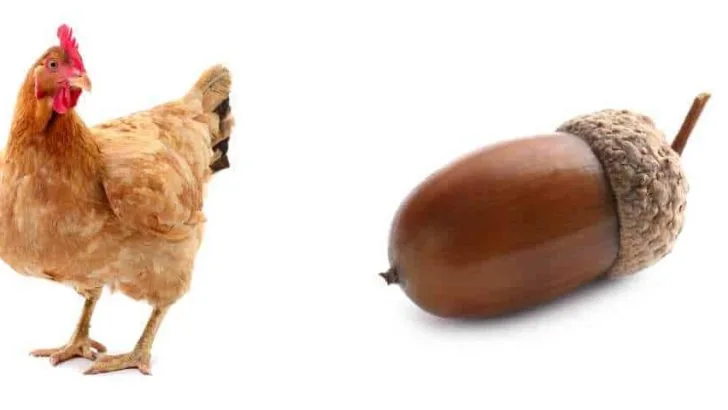Acorns are a type of nut that grows on oak trees. Oak trees are common all around the world; most backyards are filled with oak trees. Since oaks are always plentiful with acorns, you might be wondering what you can do with all that fruit.
If you have chickens in your backyard, I bet you were thinking about including acorns in your chickens’ diet. But can chicken eat acorns? Since acorns are toxic to most animals, I recommend you to stick to this post until the end and learn a bit more about this burning topic.
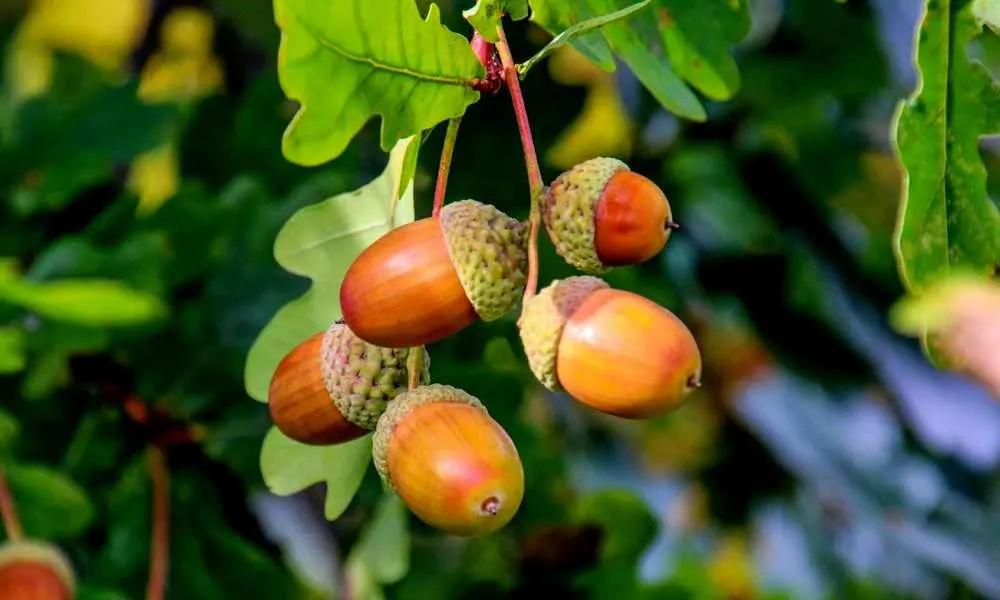
Are Oak Acorns And Leaves Toxic For Chickens?
Unfortunately, I must break your hopes here and now; all that acorn you have gathered across your backyard won’t be a good feeding choice for your chicks. Raw acorns that fall from trees are toxic to chickens and all other household pets, cattle, and livestock.
Acorns are covered in tannic acid, and if you do not thoroughly wash this toxin off of it will cause some severe health issues for your chickens and all other animals you might have. Keep in mind that they are also toxic to humans; in case you ever tried one (hopefully not), the more bitter the acorn is, the more tannins were present.
Acorns cause stomach pain, constipation, and other related symptoms.
You literally have to soak them to remove all traces of this toxin a few times and wash them thoroughly a few times as well to be able to use them for feeding your chickens. Acorns are only safe to consume when they’ve been leached if you really want to try to feed one to your flock.
Much like acorns, in small quantities, leaves are toxic; a chicken might not experience any side effects; however, leaves contain the same harmful toxins.
To be sure your chickens are all well, avoid any contact between them and oak leaves and seeds. In case you are still up to trying to feed your chickens with acorns, you can see how to do that properly in the guide below.
Chicken and nuts are controversial topics for ages now since some consider them to be perfectly healthy and even beneficial snacks for the chickens, but on the other side, some people believe that they can do more harm than good.
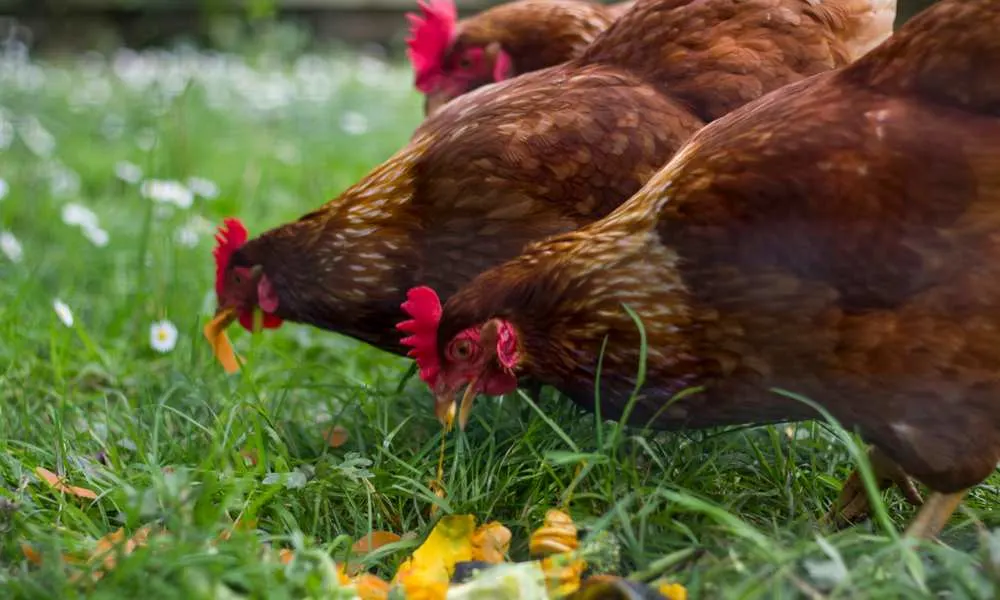
How To Feed Acorns To Chickens?
Feeding acorns to the chickens won’t be a big problem since they tend to eat anything that’s given to them. But the feeding process is not so easy as tossing the acorns across the yard; before feeding acorns to the chickens, you must make sure to soak and wash them first to remove all the tannins.
If you do not do that properly or at all, the toxin will make them very ill, and in some cases, it can even cause death if they consume too many acorns.
Once you’ve soaked the acorns, always crush them into a bit of a piece since they are too big for them and sprinkle them over the ground. There is one more way to feed them with acorns, and that is to mix the pieces of the acorns with their regular feeds and enhance the nutritional value of their feeds.
Before you leach them, make sure you remove the shells and caps from your acorns. Below are the instructions on how to leach acorns:
- Start this process by boiling water in two different pots large enough to hold all the acorns you have.
- Drop the raw acorns without the shell in one pot
- Let them boil for about 10 minutes
- Once the water is dark, strain the acorns through a colander
- After the water is drained, put the acorns into the second pot of boiling water
- In the meantime, refill the water to the first pot and boil it once more
- Repeat this process until the water in pots boils clear (this will take about an hour or more)
There is, of course, one more method to leach the acorns, but it will take a couple of days, though.
- Take a large container and pour half of it with cold water
- Drop the raw acorns into the container
- Let them soak in the water and let it leach
- Change the water when the color turns darker
- Repeat this process until the water in the container no longer turns dark
- This process will take at least a couple of days
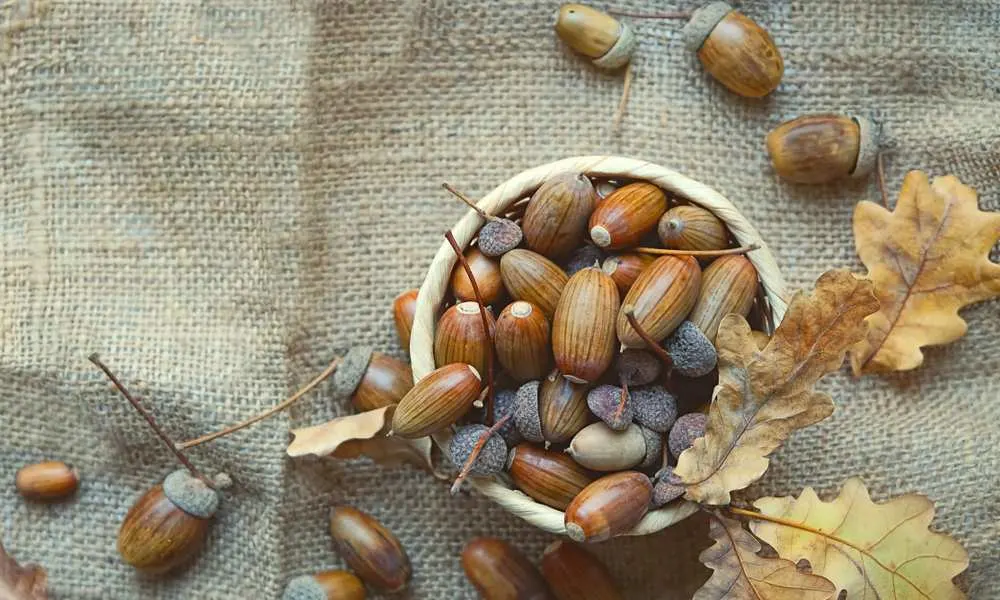
How Much And How Often You Can Feed Acorns To Chickens?
It takes a while to remove the toxins from them, so most people tend not to bother with feeding chickens the acorns at all. In case you decide to include acorns in their diet, hens can benefit a lot of nutrition from it, but do not overfeed them with acorns.
Remember, you should only feed the chickens with acorns in moderation. As said, acorns are high in protein and fat, so overconsumption will lead to obesity and impede them from laying eggs. Give acorns to the chicks as treats from time to time or include them in their daily diet in minimal amounts and keep it around 10% of their whole diet. The rest, 90%, should come from commercial feeds.
How To Recognize Acorn Poisoning?
If a chicken or any other animal consumes acorns or leaves, they may show acorn poisoning symptoms, also known as Quercus poisoning. Chickens are very susceptible to acorn poisoning since they may run across acorns or oak leaves and eat them while they are searching for insects or any other quick grub on the ground.
I’ll run you through some of the symptoms below. Tannin is a serious toxin and something you should make sure your flock and any other pet in your household are not exposed to.
The possible symptoms include:
- Vomiting
- Diarrhea
- Lethargy
- Stomach pains
When chickens are eating leaves and seeds containing tannic acid in large amounts or for a prolonged period of time, the effects are much more serious:
- Swollen kidneys
- Liver damage
These cases mostly end up fatal.
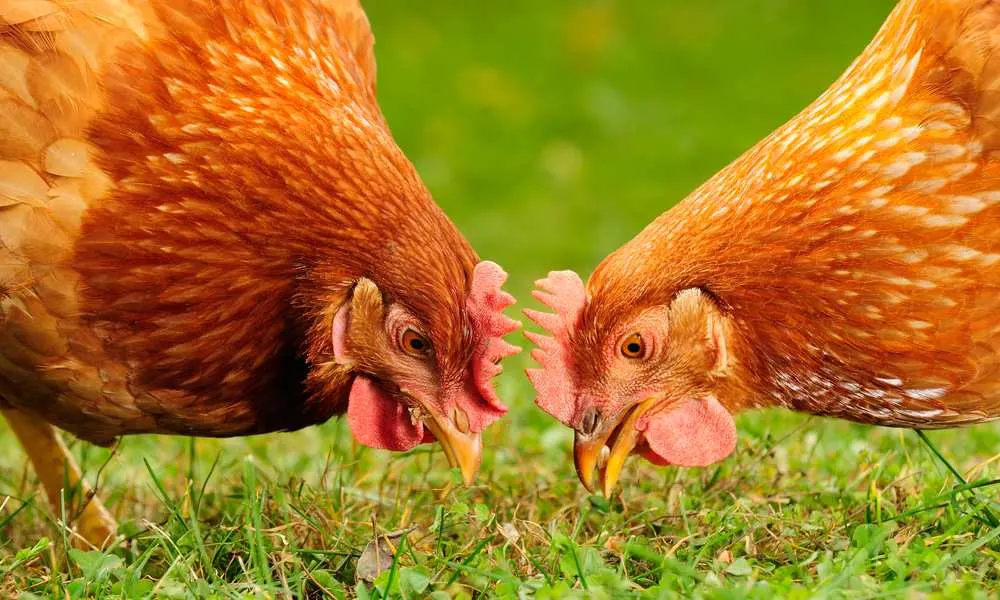
Should You Feed Acorns To Your Chickens?
I get that it’s tempting to feed acorns to your flock if you have an oak tree in your backyard. But the question is should you risk feeding your flock with acorns at all?
Acorns are highly nutritious and make an excellent treat that will provide some key nutrients if you soak them properly and remove the toxins. Below you can learn all about the health benefits of feeding acorns to your flock.
Health Benefits Of Feeding Acorns
As said, acorns are very rich in nutrition; they contain a large amount of protein, carbohydrates, and fats. To be more precise, it contains:
- 50.4% carbohydrates,
- 34.7% water,
- 4.7% fat,
- 4.4.% protein,
- 4.2% fiber,
- 1.6% ash.
A pound of shelled acorns contains 1,265 calories, approximately 3.5 ounces has 500 calories, and 30 grams of oil, so be aware that they provide too much energy! It also has minerals like calcium, phosphorus, potassium, vitamin A, E, and niacin.
Acorns are also rich in antioxidants. Antioxidants are compounds that help prevent damage or repair the damage that is caused by harmful molecules called free radicals.
Antioxidants are very important, and chickens that are fed a high diet of antioxidant food will be way healthier than chickens that consume low amounts of antioxidants in their diet.
Acorns contain proteins, which help with muscle development as well as the repairing process. Also, proteins are crucial for producing strong and healthy eggs.
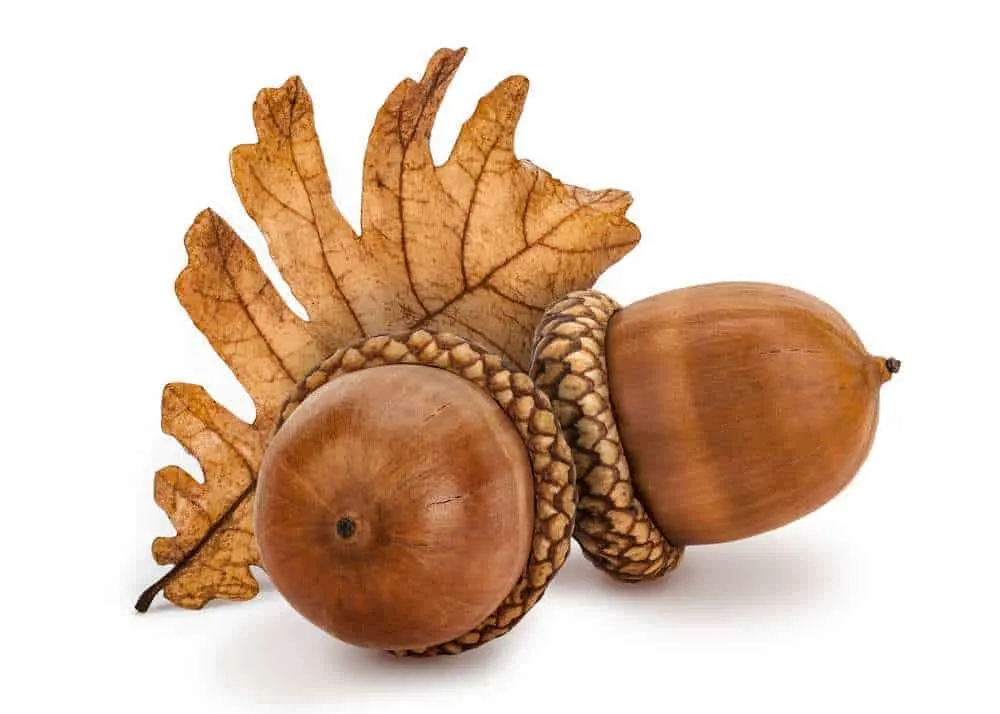
Final Words
Acorns may seem harmless to you, but in case you have an oak tree in your backyard, keep an eye on your pets just in case. These nuts are toxic and potentially lethal for your flock. Many commercial feeds have acorns in their formulation, but this does not need to concern you; those acorns are well prepared and cleaned from toxins.
There are plenty of other foods that your flock will love to munch on and are a lot safer, like herbs, fruits, vegetables, and grains; hold onto them and be sure your flock is out of any danger.

